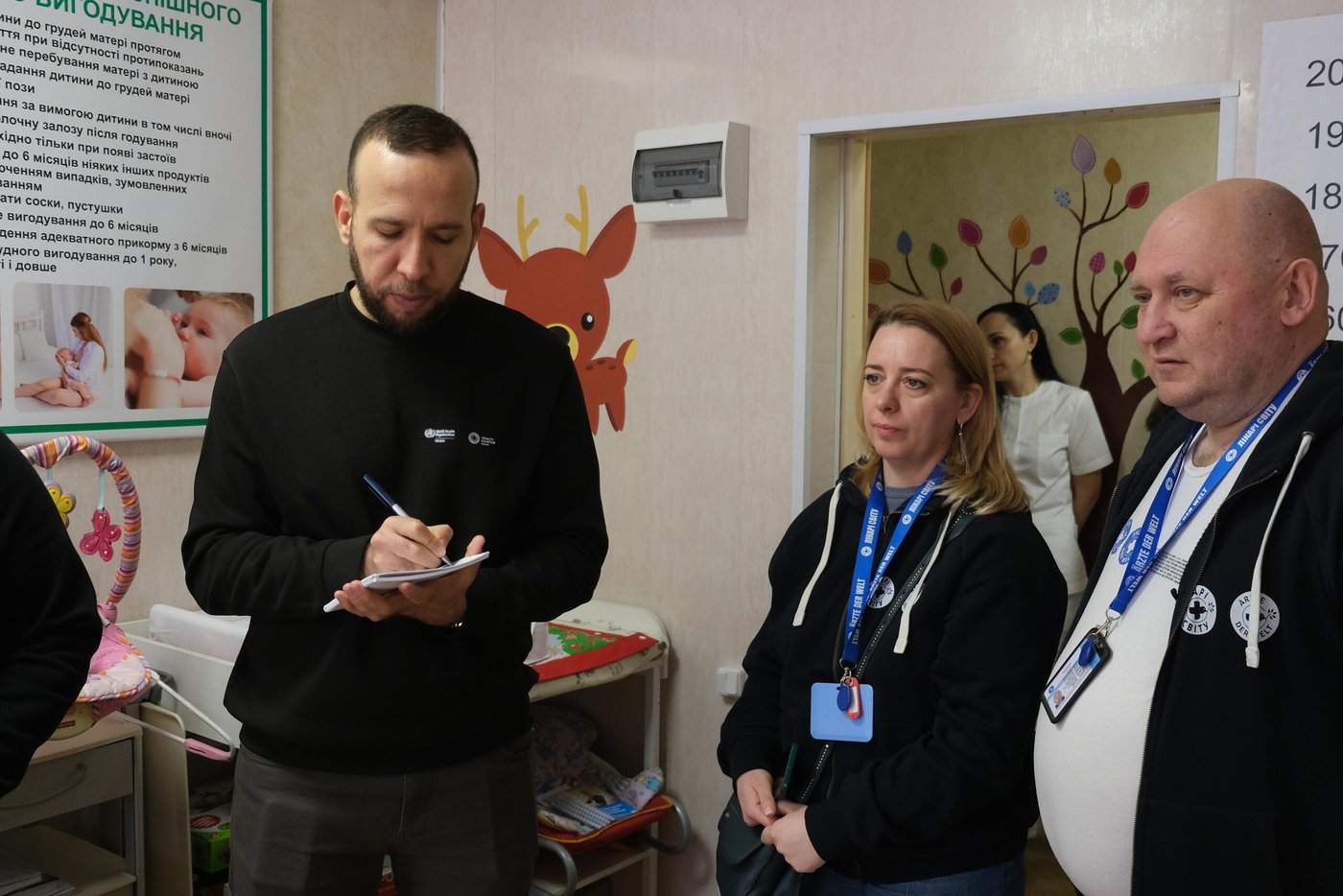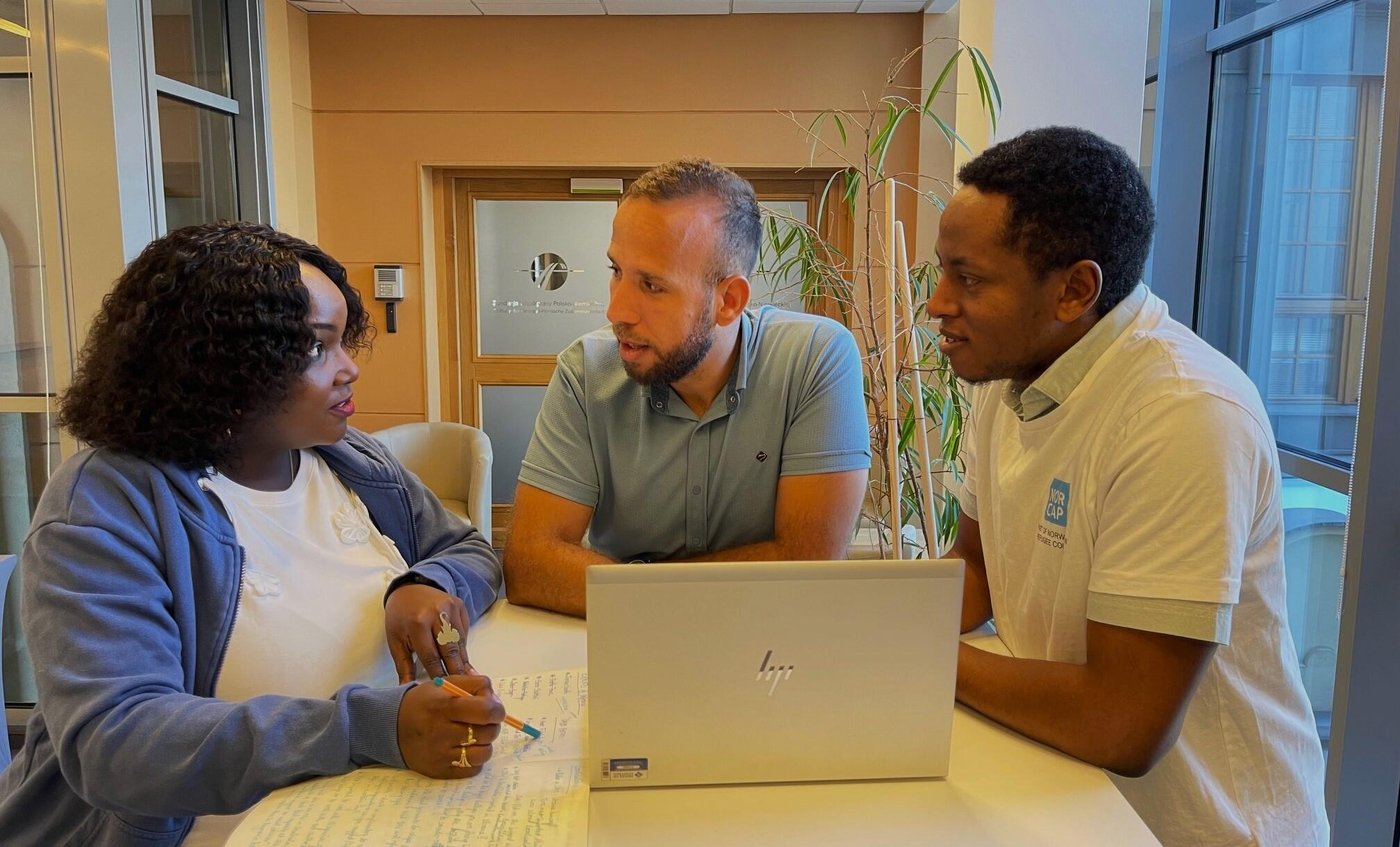Working in an ongoing conflict area such as Ukraine, most people would find it challenging to take on more than the work they are expected to, but for Fridah Beatrice Miyayi, Ameer Hussein and Joseph Kamau it was an opportunity they could not turn down.
Despite the constant threat of violence and the challenges posed by a war-torn environment, their resilience and teamwork not only helped them survive, but also thrive in their professional roles, through an innovative cross-sector collaboration.
“We first connected through regular NORCAP meetings, as well as through WHO unit meetings at HQ. At these meetings, we provided updates on the work we were doing and we quickly saw opportunities for collaboration”, says Fridah Miyayi.
All three experts were working for the World Health Organization in Ukraine, but in very different positions. Joseph as an information management officer, Ameer as a cash for health expert and Fridah coordinated the health cluster on the sub-national level. While their roles were different, the team members shared an ambitious trait and a drive to work as efficiently and coherently as possible.
Their collaboration was often based on location and sector. Joseph supported Fridah and Ameer with data and analysis, and by creating geographic information system maps, where a number of data can be included on maps to create a better understanding of a certain context or situation.
“We have worked together on mapping our partners involved in cash-for-health initiatives, managing and analysing data fed into our developed tools. The collaboration also supported project monitoring and provided a clearer overview of deadlines and deliverables”, says Joseph Kamau.
Interpersonal skills improved effectiveness
All humanitarians know the value of good cooperation with colleagues in other agencies, as well as with national authorities and local communities. However, the kind of collaboration that these three experts are doing, is not as common as you may think.
“It is quite rare. While most of our collaboration happened at the national level, we did work together on specific tasks at the sub-national level when needed, especially when we were dealing with area-specific tasks that required certain actions and responses”, says Ameer Hussein.
This view is supported by NORCAP's Kjersti Haraldseide.
"At NORCAP, we believe that the strength of our response lies in the diversity of our experts and their ability to collaborate across sectors. This partnership in Ukraine illustrates how building on each other's expertise and fostering strong interpersonal bonds can lead to innovative solutions and better outcomes for the communities we serve", says Haraldseide, Directør for NORCAP's Emergency, protection and resilience section.
When the collaboration started, Ameer had worked in Ukraine for many years, but was new to NORCAP. Fridah and Joseph had more NORCAP experience and also knew the Ukraine context well. They are convinced that their collaboration led to a better contribution from them overall.
“This set-up offered comprehensive support, combining our diverse skills, knowledge and experience within the same team. It significantly improved our turnaround time for assignments and ensured we met the health cluster's objectives more effectively”, says Fridah.
“The fact that we could reach out to each other directly, often through informal channels, meant we were able to respond faster and more efficiently, and it gave us better overall results”, Joe adds.
And precisely the use of informal channels, and the interpersonal relationship that the three of them have fostered, are key to the success of their collaboration.
“The fact that we also saw each other outside of work and became good friends, not only made our collaboration smoother and faster. Sharing light moments like memes or outings helped us reduce stress and promotes openness in knowledge-sharing, especially when cross-sector information was needed. It also created a trust circle for us as team members”, says Ameer.



